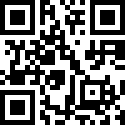Unit 26. Can, could and (be) able to
(использование оборотов can, could, (be) able to)
We use can to say that something is possible or that somebody has the ability to do something.
We use can + infinitive (can do / can see etc.):
- We can see the lake from our bedroom window.
- Can you speak any foreign languages?
- I can come and see you tomorrow if you like.
- I'm afraid I can't come to the party on Friday.
- Are you able to speak any foreign languages?
- I can't sleep.
but I haven't been able to sleep recently. (can has no present perfect) - Tom can come tomorrow.
but Tom might be able to come tomorrow. (can has no infinitive)
Sometimes could is the past of can. We use could especially with:
see hear smell taste feel remember understand
- When we went into the house, we could smell burning.
- She spoke in a very low voice, but I could understand what she said.
- My grandfather could speak five languages.
- We were completely free. We could do what we wanted. (= we were allowed to do …)
We use could for general ability. But if we are talking about what happened in a particular situation, we use was/were able to … or managed to … (not could):
but |
The negative couldn't (could not) is possible in all situations:
- My grandfather couldn't swim.
- We tried hard but we couldn't persuade them to come with us.
- Alf played well but he couldn't beat Jack.
(использование оборотов could (do) и could have (done)).
See Unit 28. Must and can't
(использование оборотов must и can't).
See Unit 36. Can/ Could/ Would you …? etc. (Requests, offers, permission and invitations)
(использование оборотов Can/ Could/ Would you …?). хостинг для сайтов © Langust Agency 1999-2024, ссылка на сайт обязательна
![агентство Лангуст [переход на главную] Агентство Лангуст [переход на главную]](/pic/logo.gif)

